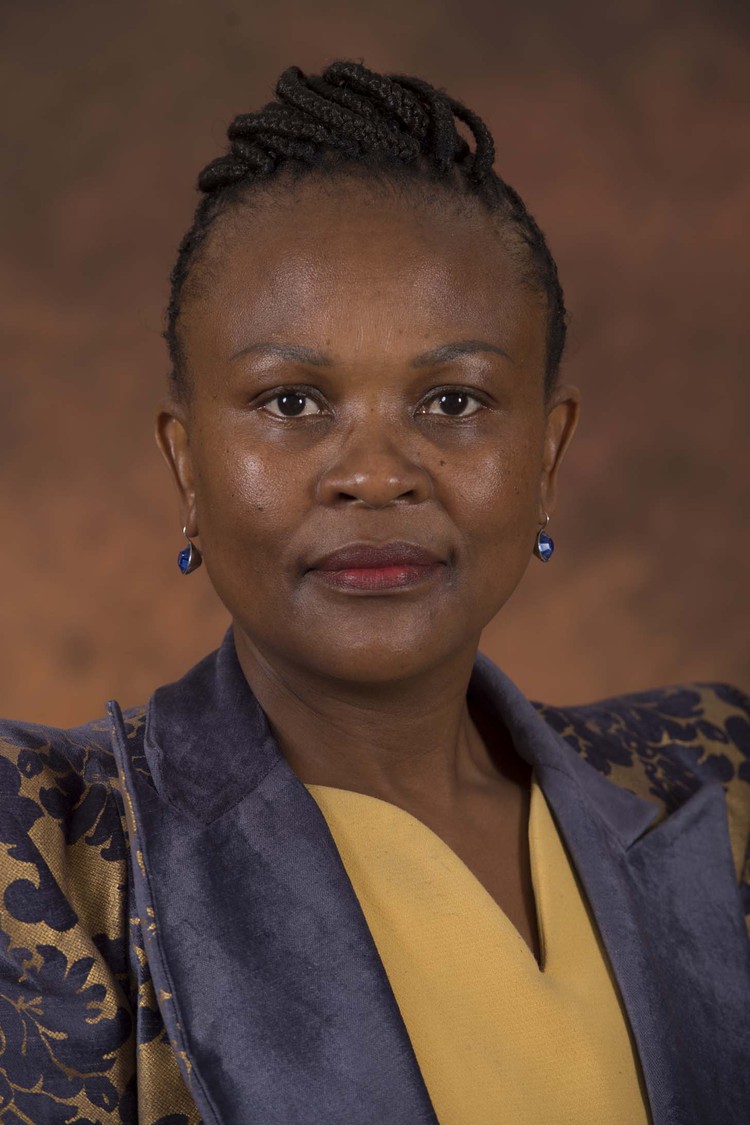
Public Protector Busisiwe Mkhwebane had little success in obtaining outstanding documents and information from PRASA, despite subpoenas being issued. Photo: GCIS
10 June 2019
An April report by the Public Protector investigating eight serious allegations of maladministration levelled against PRASA, finds all but one of them to be unsubstantiated by the evidence obtained.
However, the findings of a forensics services firm mandated by National Treasury to investigate a number of PRASA deals, is at odds with Public Protector Busisiwe Mkhwebane’s conclusion in relation to one of the eight allegations.
Mkhwebane’s report, published in April, largely lets PRASA off the hook. Her predecessor, Thuli Madonsela, was damning in her 2015 Derailed report. Madonsela deferred investigation of seven out of 37 allegations to the new incumbent.
Madonsela also mandated Treasury to investigate almost 200 PRASA contracts worth R10 million or more, which Treasury parcelled out among 13 auditing firms.
One of these, Fundudzi Forensic Services, investigated the Bridge City Project in eThekwini municipality, where during the period 2008 to 2010, PRASA allegedly paid the developer upfront for the construction of an underground train station without a bidding process or obtaining proper authorisation. This was one of the matters Mkhwebane was tasked with investigating. The Fundudzi report executive summary is among a trove of documents leaked to GroundUp in what is known as #PRASALeaks, but it has never been made public officially.
The public protector considered various documents including the 2007 Bridge City Memorandum of Understanding between the SA Rail Commuter Corporation (which became PRASA) and Crowie Projects of 2007, an approved memorandum of September 2011, the 2007 development agreement between Crowie and SARCC, the 2010 development agreement between Crowie and PRASA, the addendum to the development agreement, and emails. Yet Mkhwebane states there is “no conclusive evidence that PRASA made an upfront payment to the developer”.
Payment schedules revealed PRASA paid over R944 million to Crowie between 15 September 2010 and 31 January 2013.
But Fundudzi found that Crowie Projects was appointed the Project Manager or Turnkey Project Management on each stage of the project involving the rail link from Bridge City Mall in KwaMashu to the Duffs Road Station without following procurement processes. Instead, the firm was appointed based on a deviation authorised by former GCEO Lucky Montana.
Directly related to the allegations the Public Protector was mandated to investigate, Fundudzi found former project manager Luyanda Gantsho motivated for payments to be made to Crowie Projects for work that was not rendered. The payments were authorised by Montana and head of PRASA technical division, Saki Zamxaka.
Beyond the limited scope of whether or not there was an upfront payment, Fundudzi found that Enza Construction and Focus Group Management, which were linked to Crowie Projects, “benefited from the projects in circumstances that created a conflict of interest”.
Furthermore Fundudzi investigators reported that the continuous appointment of Crowie Projects for a period of eight years was against the constitutional stipulation that government contracts for goods and services must be in accordance with a system that is fair, equitable, transparent and cost-effective.
However, as Fundudzi’s detailed report is not available to GroundUp, it is uncertain whether Mkhwebane and the Fundudzi investigators had access to the same documents. It seems Mkhwebane restricted her investigation to its very narrow scope, while Fundudzi examined broader aspects of maladministration in relation to the contract.
The reason Madonsela deferred the investigations to Mkwhebane was due to PRASA failing to provide the requested documents and records.
Four years later, Mkhwebane similarly had little success in obtaining outstanding documents and information from PRASA, despite subpoenas being issued. The records, states Mkhwebane, were “not available”.
“I am persuaded to make a finding that the erstwhile GCEO’s and/or PRASA management’s failure to keep proper records or secure information and documents in this regard is substantiated and found to be improper,” states Mkhwebane.
This leads Mkhwebane to recommend the Hawks “investigate and arraign officials responsible for destruction of records” at PRASA for violating the National Strategic Intelligence Act.
The other allegations in Derailed that the Public Protector investigated included:
Only the allegation related to Umjantshi House was found by Mkhwebane to be substantiated.
Mkhwebane has had several adverse court rulings against her rulings:
On Twitter over the weekend Mkhwebane stated that she strongly believed she “was placed in this position by the God that I serve and I believe that only He can remove me if He is of the view that I have failed”.
In fact she was appointed to be Public Protector by Parliament, which may also remove her.